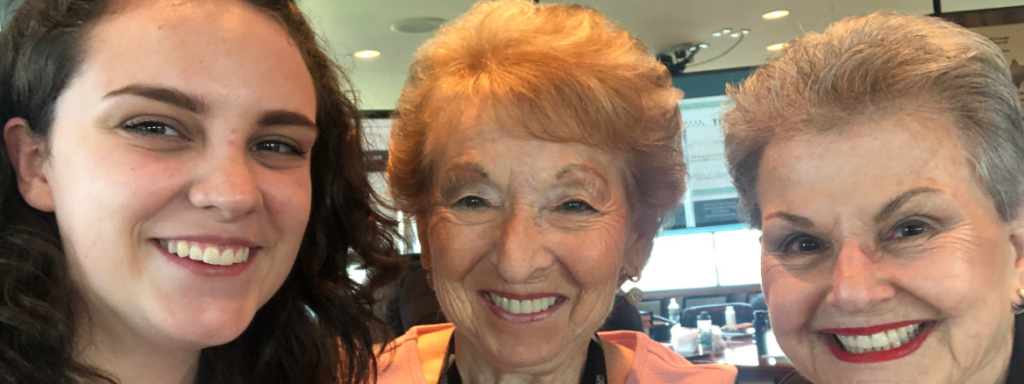Page 345 • (5,287 results in 0.039 seconds)
-
. Each test results in a numerical score of 200-400. The results are scaled such that a score of 300 represents the average national performance. The four tests are as follows: Survey of Natural Sciences = 90 minutes, 100 questions – 40 questions cover biology, 30 questions cover general chemistry, and 30 questions cover organic chemistry Reading Comprehension = 50 minutes, 40 questions – three reading passages each with 13 or 15 questions about each passage Physics = 50 minutes, 50 questions
-
circumstances, faculty do not have time to learn such skills. In this blog post, I will provide some basic advice for engaging remote learners in emergency situations. Virtual Class Sessions Virtual class sessions are often appealing to faculty new to online teaching because it seems like the easiest way to recreate what they are doing in the classroom. However, teaching virtually requires a different approach than teaching face-to-face. If faculty choose to hold live, virtual class sessions, here are a few
-

Lutes to teach English abroad through Fulbright Program Posted by: Kari Plog / May 8, 2017 Image: Fulbright Scholars Alexandra Dreher ’17 (left) and Sydney Otey ’17. (Photo by Molly Ivey ’20) May 8, 2017 By Genny Boots '18PLU Marketing & CommunicationsTACOMA, WASH. (May 8, 2017)- Two Lutes were accepted into the prestigious Fulbright Program and will serve as English teaching assistants around the world. A third Pacific Lutheran University student was recognized as an alternate.Sydney Otey ’17
-

Mathematics major Lindsey Clark ’24 is a Noyce scholar and future teacher Posted by: Zach Powers / April 2, 2024 Image: Lindsey Clark ’24 will return to PLU in the fall to earn a Masters of Arts in Education and her teaching credential. (photos by Sy Bean/PLU) April 2, 2024 By Mark StorerPLU Marketing & Communications Guest Writer Lindsey Clark ’24 came to PLU knowing it was where she wanted to be. But Clark—a double major in mathematics and gender, sexuality, and race studies (GSRS)—says PLU
-
closely aligned to her own. Professor Michal’s approach to teaching is based on getting to know her students and becoming fully invested in their progression as writers. Her teaching style is centered on the student, a style much like that of mentorship. She wants her students to be the main drivers of dialogue in the classroom and to know that their opinions and views of the world are something to be valued. She helps students see themselves as writers and encourages them to participate in the
-

, teaching two semesters of World History at Brooklyn College (BC). She writes, “Teaching World History has been one of the most challenging and enriching aspects of my graduate school experience. My students come from incredibly diverse backgrounds and bring so much to the classroom. I get to learn about historical topics that I do not cover in my own work and I have such a broader understanding of global historical trends now. Brooklyn has also been incredibly supportive—we (the other teaching fellows
-
curricular changes she made this year to make a biology unit more culturally relevant.Congratulations CS-STEM Graduates! (May 2023)Congratulations to all five of our CS-STEM Teacher Candidates who earned their MAE degrees! We look forward to you teaching in your own classrooms in the fall and look forward to hearing about your first year during our Induction Seminars. Congratulations to our CS-STEM Scholar Grayson Nottage who earned her Bachelor’s degree and was featured in the PLU News’ series about
-
Library: the Haley Center Lab and the Digital Design Lab. User Services Mission Statement To enable the PLU community with user-centric service, support and training to enhance the use of technology in teaching and learning. Empowering users with information technology and skills for enhancing teaching and learning. Providing responsive and patient technology support and quality customer service for teaching and learning. Fostering continuous learning and exploration to keep pace with changing
-
Gerlach, who is retiring in May after 35 years of teaching at PLU, recognized the obstacles today’s teachers face and decided early on in his career to highlight paraeducators as a key to teaching.“More than ever before, children need to see adults working well together,” Gerlach writes in his book Let’s Team Up! “This comes from respecting and recognizing each other.” Paraeducators are school employees who work under the supervision of teachers, and their jobs are usually instructional. One big
-
differently. Looking back, this did help prepare me to realize that teaching in another country context would not look the same as classrooms and teaching in the US. The other (Oslo) focused on international peace and conflict studies, with programming regarding immigration, ethics, and international systems. It was interesting learning about migration from a European context instead of a US one. However, part of the YAGM Mexico program is a week long retreat on the US/Mexico border in Sonora/Arizona. We
Do you have any feedback for us? If so, feel free to use our Feedback Form.


